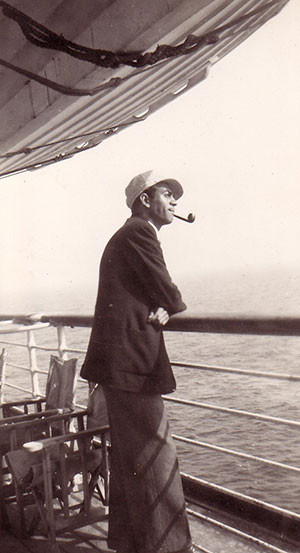Among his most famous short stories are, "The World of Donkeys" 1936 , "The Poor Tulip" 1936 , "Why Winter Never Came" 1938 , "Butterfly Dreaming", 1942, "Sikosita" 1946, "The Blinds of Tomorrow", 1947 , "A Letter to God" 1948 , "A Number of Poor People" 1948 , "The Jasmine Tree" 1948 , "The Night of the Storm", 1954 , "Joys of the Angels" 1955 , "Twilight", 1956 , ''The Dead", 1956 , "Seat Number 15", 1956 , "The Secret of Life", 1957 , " Escape at Dawn", 1956 , "The Bomb ",1957 ,"The Skull", 1958 , "The Flood", 1957 , "The Other Road", 1957 , "The Train", 1973 , "The Award", 1974, "Nowhere", 1975 , "The Search for a Dream," 1976 , "The Gun", 1977, "Symphony", 1978 , "Lonesome Melody ",1983 , "The House", 1984 , "Urgent Surgery'' 1985 , "Outside the Cave" 1986, "With No Address", published 2002 , "The Grand Hall", published 1999 and many others.

His family is beginning to publish his unpublished stories, which he had wanted so much to see in book form. In 2002, his first book in English translation appeared, " A Selection of Short Stories ". It contains 12 of his short stories selected and translated by his daughter according to his own wish. The stories are chosen to present his writings at various stages of his life; starting with "Sikosita>", 1946, and ending with his last work, "The Grand Hall" , published after his passing away in 1999. The stories show how his mastering of symbolic art and his fertility of imagination started with the writer from the earliest stages and also shows the development which his writing style had undergone. This book is worldwide available at international book-fares, hopefully other books are to follow.
Among his other works are over a hundred articles and weekly columns in the most prominent papers, "With Thought and Imagination", "The Weekly" and "From the Diary of Youssef Ezeddin Eassa", which his family is collecting and preparing to be first released in book forms and later, in English translations.
His book "Is it God or Nature", was the result of a successful seminar which he gave in the United States when he was a visiting Fulbright professor in the sixties. The book was later published in Arabic, in the sixties.
Moreover are his analytical essays about other writers, which have been published in Quatar's 'Alam Al Fikr' and ' Al Dawleya' magazine. The articles are: "The World of William Falkner", "The Tragic End of Virginia Woolf", "The Science fiction of Jul Vern " together with scientific articles.
There is now an attempt to collect all his articles and all what has been said and written about him and about his works, to be published it in book-form, together with his TV and radio talks online, that have to be written, published and finally translated. Such papers, tapes and programmes which he had written, said or which have been written about him make shelves and shelves filling up a whole room in his home besides those in bookshelves in his living room and filling up boxes in his study.